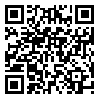Volume 1, Issue 4 (12-2014)
jbrms 2014, 1(4): 42-50 |
Back to browse issues page
Download citation:
BibTeX | RIS | EndNote | Medlars | ProCite | Reference Manager | RefWorks
Send citation to:



BibTeX | RIS | EndNote | Medlars | ProCite | Reference Manager | RefWorks
Send citation to:
Anvari E, Keshtgar S, Noorafshan A, Rafati A. Induction of type 2 diabetes with high concentration and long term fructose intake in male Sprague-Dawley rats. jbrms 2014; 1 (4) :42-50
URL: http://jbrms.medilam.ac.ir/article-1-80-en.html
URL: http://jbrms.medilam.ac.ir/article-1-80-en.html
, A_rafati@yahoo.com
Abstract: (6361 Views)
Introduction: High calorie diet is becoming the most important health problem in most developed western societies. Diets with high caloric contents such as high fructose intake are associated with increasing risk of type two diabetes (T2D) and insulin resistance (IR). However, large differences have been seen in the dose and duration of fructose consumption to induction of T2D. Interest to develop animal models, in which IR is induced by feeding a high caloric diet, is the main aim of this study. Materials and methods: Male Sprague-Dawley rats were randomly sorted into three groups, control and fructose-treated (10 and 20 %) animals. After 6 and 14 weeks, fluid intake, body weight, intraperitoneal glucose tolerance test, metabolic parameters (glucose, insulin, triglyceride, cholesterol, uric acid) and homeostasis model assessment of insulin resistance were checked. Results: There was no difference between the body weight of the fructose-treated (10 and 20 %) and control groups during the experiment. Fluid intake in fructose-treated ones (10 and 20 %) was significantly higher than the control group from third week to the end of experiment. Intraperitoneal glucose tolerance test was the same for all groups in either sixth or fourteenth weeks. Fasting plasma insulin, triglyceride, uric acid and homeostasis model assessment of insulin resistance and glucose tests showed significant enhancement in fructose-treated rats (20%) only after 14 weeks. Conclusion: Consumption of high fructose solution (20%) for 14 weeks could induce IR, but using of low dose of fructose (10% for 6 or 14 weeks) didn’t develop it.
Type of Study: Research |
Subject:
Physiology
Received: 2015/02/9 | Accepted: 2015/02/20 | Published: 2015/03/10
Received: 2015/02/9 | Accepted: 2015/02/20 | Published: 2015/03/10
Send email to the article author
| Rights and permissions | |
 |
This work is licensed under a Creative Commons Attribution-NonCommercial 4.0 International License. |




